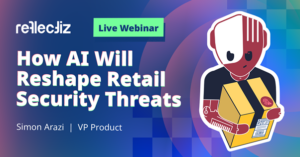SessionReaper Hits Magento: Here’s How To Protect Your Store

More than a year on from CosmicSting, SessionReaper (CVE-2025-54236) is loose in the wild with a similar level of threat to users of the Magento ecommerce platform and its paid version, Adobe Commerce. This critical vulnerability lets cybercriminals inject a persistent backdoor into Magento servers, allowing them to break into active shopping sessions without authorization and potentially take over victims’ entire stores.
At the time of writing, Dutch security firm Sansec has said that 81% of Magento-powered stores worldwide have been visited by SessionReaper, but curiously, only 38% of owners seem to have applied Adobe’s emergency patch. So, why are 62% of Magento’s estimated 130,000 users so reluctant to apply the fix, and where does Reflectiz fit into the story?
Why the Slow Uptake?
Magento site owners are well known for being slow to apply security patches—especially critical ones—but they aren’t being lazy. Their reluctance has more to do with some deep-seated financial and practical concerns:
1. Fear of Breaking Revenue-Critical Functionality
| Issue | Impact |
| Custom Code & Extensions | Magento sites often run 30 third-party extensions (e.g., payment gateways, shipping, ERP integrations). Patches can break compatibility, especially with outdated or unsupported extensions. |
| Downtime Risk | E-commerce stores can lose an estimated $9,000 per minute of downtime (and more for bigger outfits), so many vendors delay patching until there’s a low-traffic window (e.g., not Black Friday, Christmas, and similar busy periods). |
| Regression Bugs | Past Adobe patches have caused cart failures, checkout errors, or admin lockouts, which naturally makes store owners cautious. |
2. Complex and Fragmented Tech Stacks
This is linked to the above. It’s thought that around 50% of Magento stores are self-hosted, and they account for nearly all the unpatched, infected sites. These self-hosted deployments can be very complicated, relying on what you might call a ‘Jenga tower’ of integrated technologies. A patch might bring them all down, and their owners may be lacking the talent to fix them:
| Challenge | Detail |
| Multi-Layer Architecture | Magento + Varnish + Redis + CDN + WAF + custom APIs = patch must be tested across all layers. |
| DevOps Gaps | More than half of mid-market Magento stores rely on agencies or have limited in-house DevOps. |
| Hosting Provider Delays | Shared hosts (e.g., SiteGround, A2) apply patches in batches days or weeks behind Adobe’s release. |
In contrast, managed or cloud hosting provides near-immunity to SessionReaper because these offerings are more robust by design.
3. No Automated or Safe Patching Pipeline
These are essential because Magento’s complexity + ecommerce revenue risk = a potential catastrophic failure without them.
| Missing Capability | Consequence |
| CI/CD for Security | Not all Magento sites use automated deployment pipelines, especially self-hosted mid-market sites. |
| Staging Environments | Many owners skip pre-production testing due to cost/time. |
| Patch Diff Visibility | Adobe’s patch notes are technical, making it hard for non-devs to assess risk vs. reward. |
62% of stores remain unpatched, not because owners are lazy, but because manual patching is slow, error-prone, and scary.
4. Budget Constraints
| Barrier | Detail |
| Agency Dependency | Estimates suggest 60–70% of mid-market stores rely on agencies charging $150–300/hr for patch work, so they may drag their heels. |
| Budget Allocation | With some, security is reactive, not proactive. Funds go to marketing, not hardening. |
| Staffing | Average Magento dev salary in the US: $120K+. Small teams juggle features, not patches. |
5. Lack of Awareness
For its paid users, Adobe deployed Web Application Firewall (WAF) rules automatically to its Commerce Cloud customers, providing near-instant mitigation without users needing to do anything. But for the self-hosted or open-source half of the Magento user community, there is no push-notification system, so they would have only seen alerts if they had been monitoring Adobe’s security portal, RSS feed, or third-party scanners.
Why Do Some Store Owners Patch Fast?
As mentioned, Adobe’s Cloud customers get automated updates, but regulatory pressure is another reason. PCI DSS v4 (Req. 6.2) mandates timely patching, which drives compliance-focused retailers to act faster. The time limit is one month for critical security patches, but that doesn’t mean that companies don’t feel the pressure to act more quickly, given that they will need to justify any decisions they make to a QSA. Hosting companies like Nexcess or Liquid Web certainly don’t want to wait that long. They will auto-patch within 24–48 hours.
What Happens When SessionReaper Strikes
The consequences aren’t theoretical. When attackers exploit SessionReaper, they don’t just steal data—they destroy businesses:
- Customer trust evaporates overnight – Breached payment data triggers card reissuance, chargebacks, and angry customers who never return
- PCI DSS violations mean crippling fines – $5,000–$100,000 per month until compliance is restored, plus potential loss of payment processing entirely
- Legal exposure multiplies – GDPR fines up to 4% of annual revenue, class-action lawsuits, and mandatory breach notifications that make headlines
- Brand damage is permanent – “Your site gave me fraud” reviews spread fast; SEO rankings tank when Google flags your store as compromised
For mid-market stores operating on thin margins, a single SessionReaper breach can mean bankruptcy. The attackers know this — that’s why they’re hitting 130+ hosts simultaneously, racing to exploit the 62% who haven’t patched.
Where Reflectiz Fits In
Mass exploitation began October 22, 2025, after proof-of-concept code went public. Within 48 hours, attackers hit over 250 stores. By October 26, 49% of Magento sites faced active probes, with 16–18% suffering successful backdoor injections.
Reflectiz can’t patch server-side vulnerabilities, but it delivers critical client-side runtime protection that detects and disrupts the downstream attacks SessionReaper enables — credential theft, session hijacking, and Magecart-style skimming.
How It Works: Reflectiz monitors every outbound request in real-time, detecting suspicious patterns like base64-encoded session cookies sent to unknown domains. It spots dynamically injected scripts on checkout pages, cross-references anomalies against threat intelligence feeds, and integrates with SIEM/SOAR for automated blocking via CSP.
Why It Matters for Unpatched Sites: Zero server-side dependency means immediate protection whether patched or not. It stops data exfiltration while agencies schedule patching, provides auditable logs for PCI DSS compliance, and buys crucial time during high-traffic periods when downtime isn’t an option.
Don’t wait for the patch to protect your customers. Get continuous protection now. Sign up today.
Subscribe to our newsletter
Stay updated with the latest news, articles, and insights from Reflectiz.
Your Website looks great!
But what’s happening behind the scenes?
Discover your website blind spots and vulnerabilities before it’s too late!







